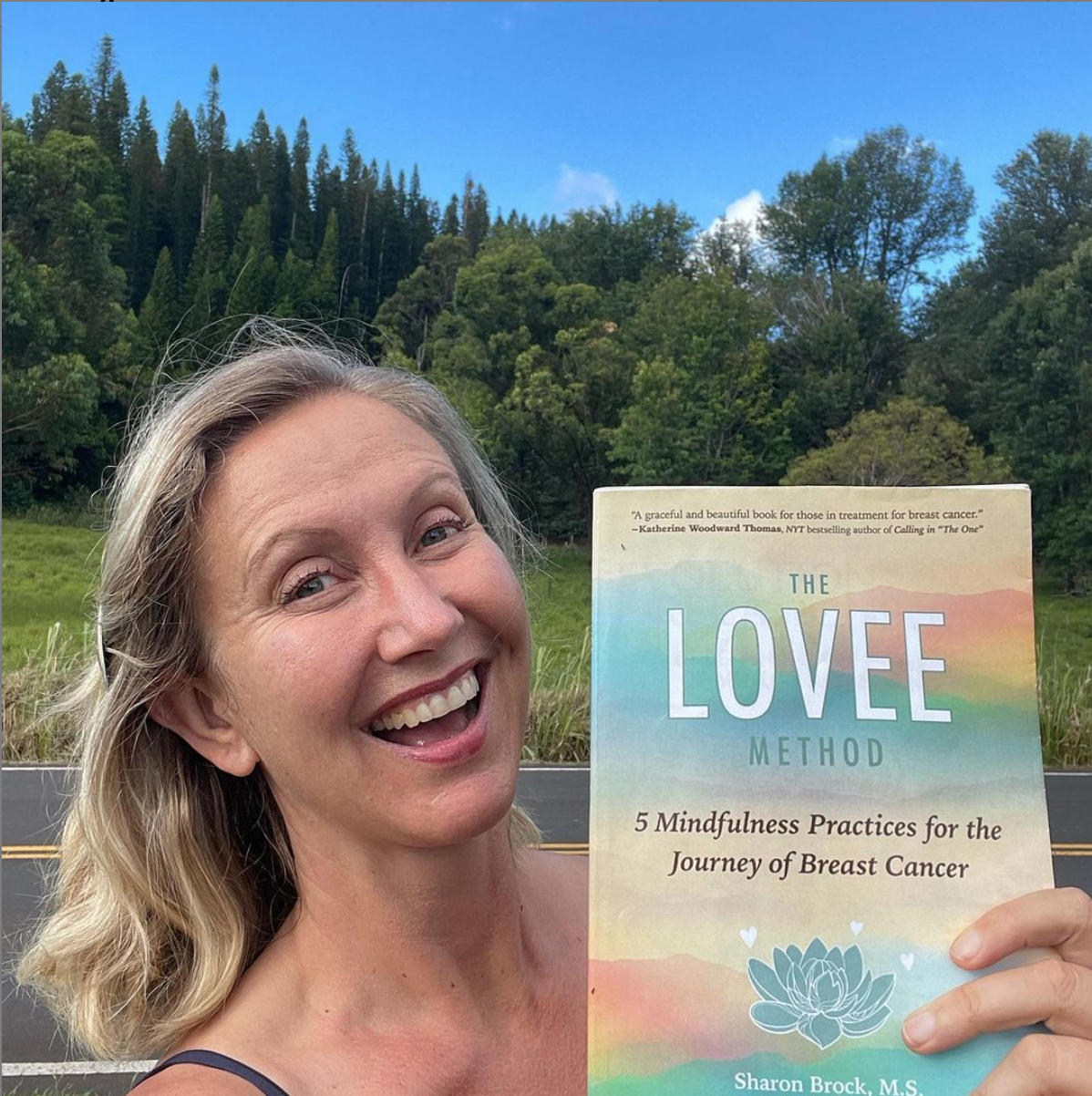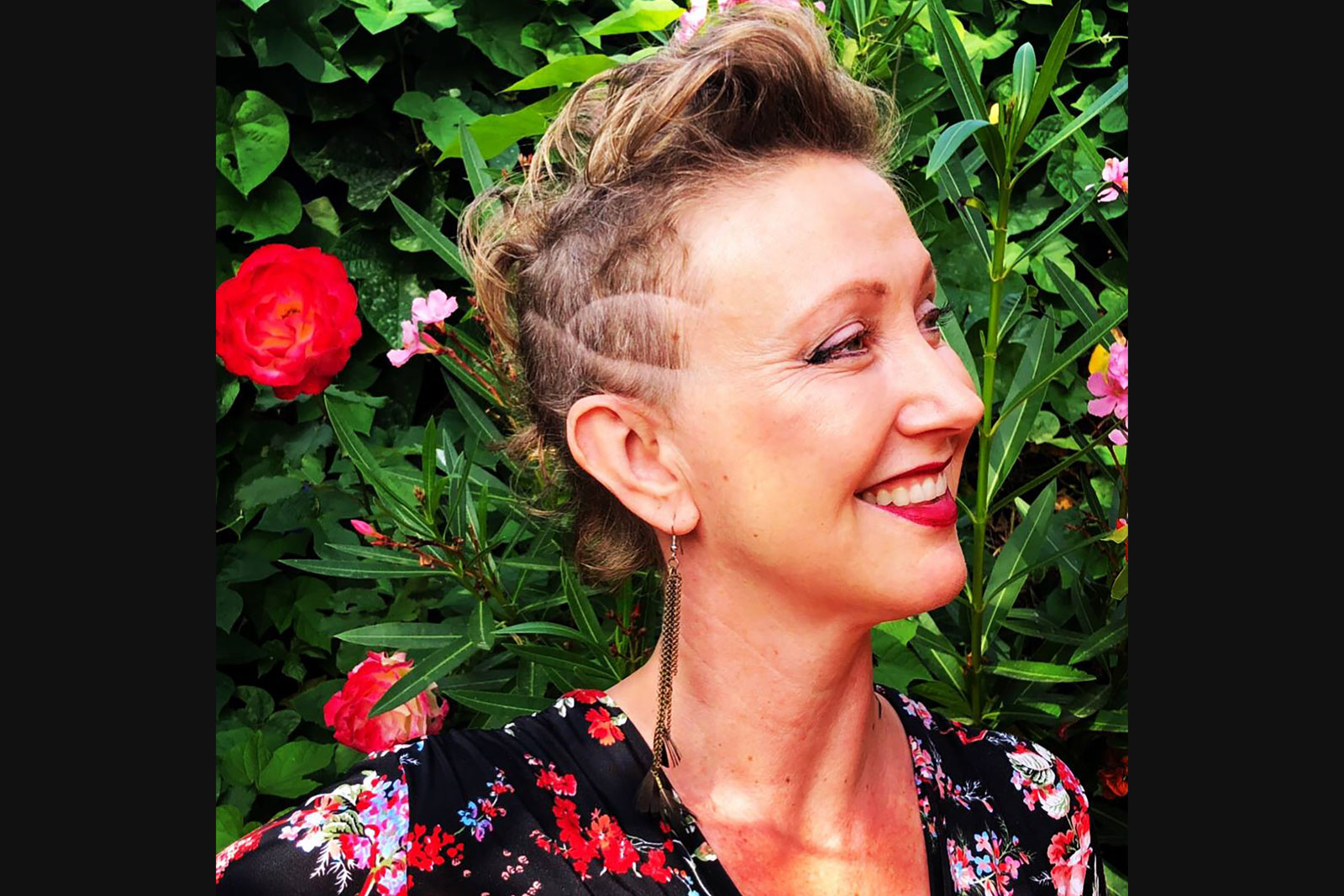Sharon Brock has had her fair share of struggles. The L.A.-based breast cancer warrior and certified mindfulness facilitator’s new book, “The LOVEE Method: 5 Mindfulness Practices for the Journey of Breast Cancer,” operates as a memoir of her life and journey through stage II breast cancer, along with scripts and guides for mindfulness, too.
A health and wellness journalist for years, Brock was already familiar with health and mindfulness practices, but the LOVEE method (Label, Observe, Value, Embrace, and Equanimity) was something she developed to help her get through her breast cancer treatments.
Brock admits in the start of her book that she used to be a “bad weather meditator.” “I only meditated when things were going wrong or if I was in a bad mood or when something happened,” she says. “It was more of a hobby, it wasn’t a necessity to get through the day. It was a reflection of how blessed my life was. It was after my diagnosis that my anxiety rose to a level where I had to have a tool. I had to meditate several hours a day just to maintain a sense of balance of mind and some peace.”
Throughout the book, Brock takes the reader through the ups and downs of her emotional well-being during her diagnosis and treatment after experiencing physical, financial and spiritual changes during chemotherapy. She often faced the question that many people may have when diagnosed with cancer: “Why me?”
I needed to learn perseverance and how to be with something that was challenging in my life without reactivity. These were all skills I didn’t have before cancer.
“We don’t know why bad things happen, and we just have to let go and surrender to that. We’re never going to figure it all out and [we have] to drop into this feeling of trust. And whatever happens is what is best for my soul’s evolution,” says Brock. “Even getting cancer [was] what my soul needed to learn. I needed to learn perseverance and how to be with something that was challenging in my life without reactivity. These were all skills I didn’t have before cancer.”
She began meditating several hours a day throughout her cancer journey, and it was mindfulness practices that were the most effective and anchored her in the present. “When I was fully dropped into the present moment, I wasn’t worrying about the future. I wasn’t worrying about my death, essentially. Or even the chemo treatment I had the next day, or the surgery,” Brock says. She felt a sense of ease and bliss in the present.
About a month after her diagnosis, Brock decided writing a book could be beneficial to other warriors. Brock was already a mindfulness teacher, so she had the coping skills. According to the American Society of Clinical Oncology, one in eight women will be diagnosed with invasive breast cancer this year alone, or almost 300,000 women. Brock felt she had a duty to help these women with their own journeys.
“This is my duty; I have to write this book,” Brock says. “Of those 300,000, how many of them have mindfulness practice?” Brock started writing one month after diagnosis and finished her first draft six months after her yearlong cancer treatment ended.

“What I hope is that the authentic emotions are conveyed in the scenes, because that’s what is healing in the reader. That the woman who’s going through it doesn’t feel alone, and that other sisters are with her and help her through it,” Brock says.
Cancer affects not only physical health but every other part of your life too, as Brock highlights in her book. “There’s something important about getting cancer at a younger age when there’s so much focus on women being beautiful,” she says. “I lost my hair, I had major surgery on my breasts—having those things compromised, it was an invitation for me to turn inward and say, ‘Where is the source of my beauty? What about inner beauty?’ And that can never be taken away from me.”
Brock underwent reconstructive surgery at UCLA and had great doctors, but she remarks how the scars reminding her of her trauma are still a struggle to see. During treatment, she used the LOVEE method to work with feelings of inadequacy or shame and the trauma of cancer. And she still uses the method to this day.
“What’s so beautiful about LOVEE is that it works with any emotion or related circumstance. It helps me get through the anxiety of cancer and now it’s helping me with feeling insecure about my scars,” says Brock.
While Brock’s book is primarily intended for women going through breast cancer, it can also help those who want to learn about emotional resilience and mindfulness through the story of one woman overcoming breast cancer.
Learn more at sharonbrockmindfulness.com.







